When content is king and attention spans are short, the ability to generate fresh and compelling content ideas has become more challenging for businesses and creators alike. Whether you are a content marketer, a blogger, or a social media manager, staying ahead of the competition demands a nearly endless stream of innovative content that captivates your target audience. After the first batch of content that you put out addressing your main offerings, it can seem like an impossible task to find new, relevant topics to cover. On the other hand, there may be so many subjects you want to address that you don’t know where to start.
Content ideation is the process of generating new ideas and developing them into high-quality content that your customers will find useful. By researching, brainstorming, and organizing your ideas, you can create a content plan that will not only help improve your brand reputation but also improve customer engagement. The goal is to create content that informs and encourages your target audience to interact, which means finding the questions that they are asking and providing meaningful responses.
Even though it can be hard to come up with great content ideas, there are many content ideation tools available and backed by data to help you choose relevant and engaging topics to address. These cutting-edge platforms are breathing new life into the creative process by helping creators come up with the keywords, the specific audience they should target, and the content itself.
By embracing the power of these tools, creators can overcome the challenges of content creation and unlock their full potential. Learn more about some of the top content ideation tools and how each of them can help you approach content creation more confidently.
BASE Search Marketing
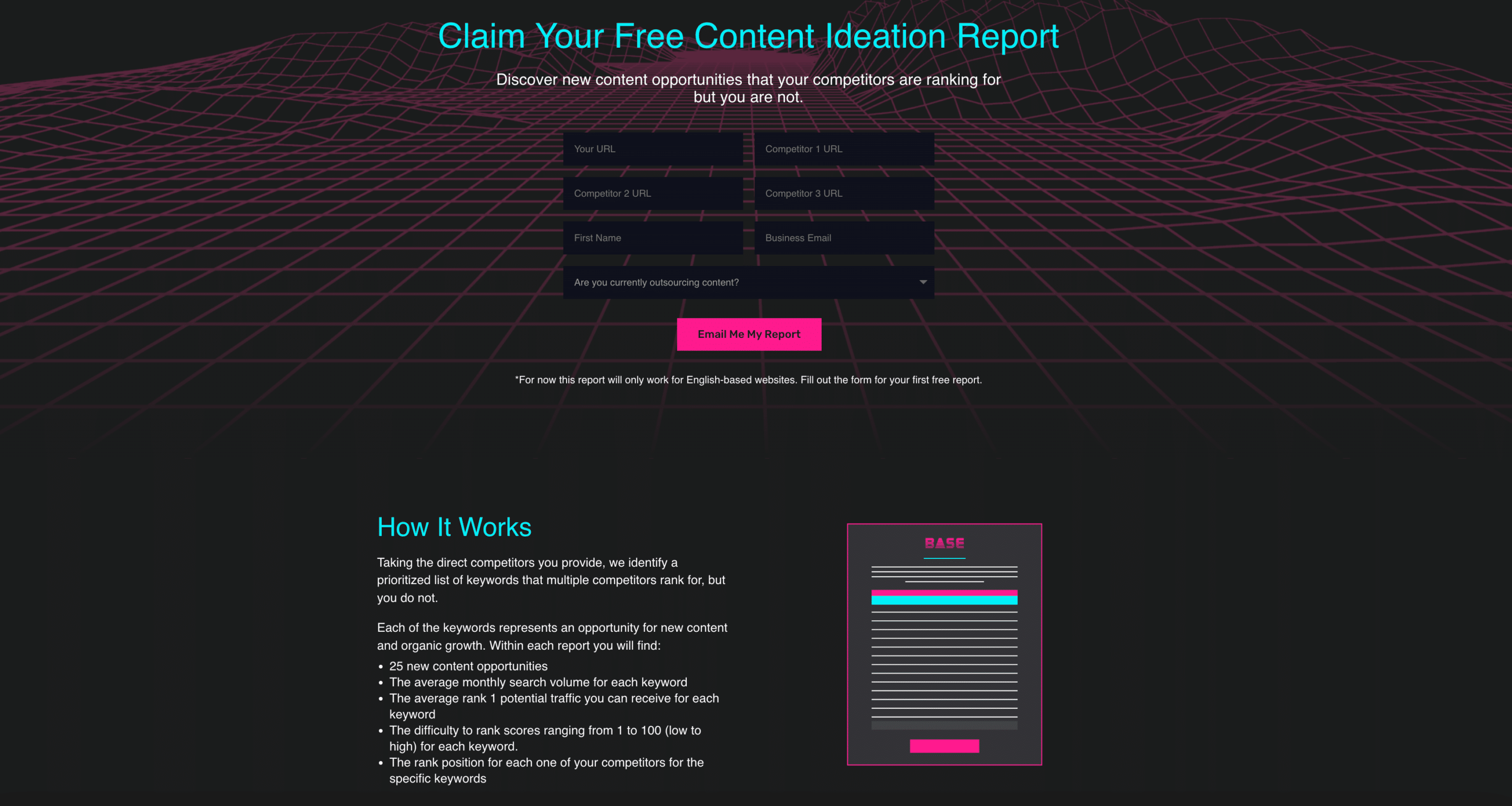
BASE Search Marketing offers a content ideation tool that allows you to examine how your content compares to that of competitors. Simply plug in your URL and the URLs for up to three competitors and get a list of keywords that you are missing out on. Once you identify these missed keyword opportunities, you can strategically optimize content and develop new content that aligns with those topics.
The list includes keywords that your competitors are ranking for but you aren’t, so whether you have underperforming content or have not covered the subject, you can better focus your creative efforts. This allows for more targeted and relevant content, as well as helps close the gap between your website and your competitors in terms of search engine rankings.
Quora
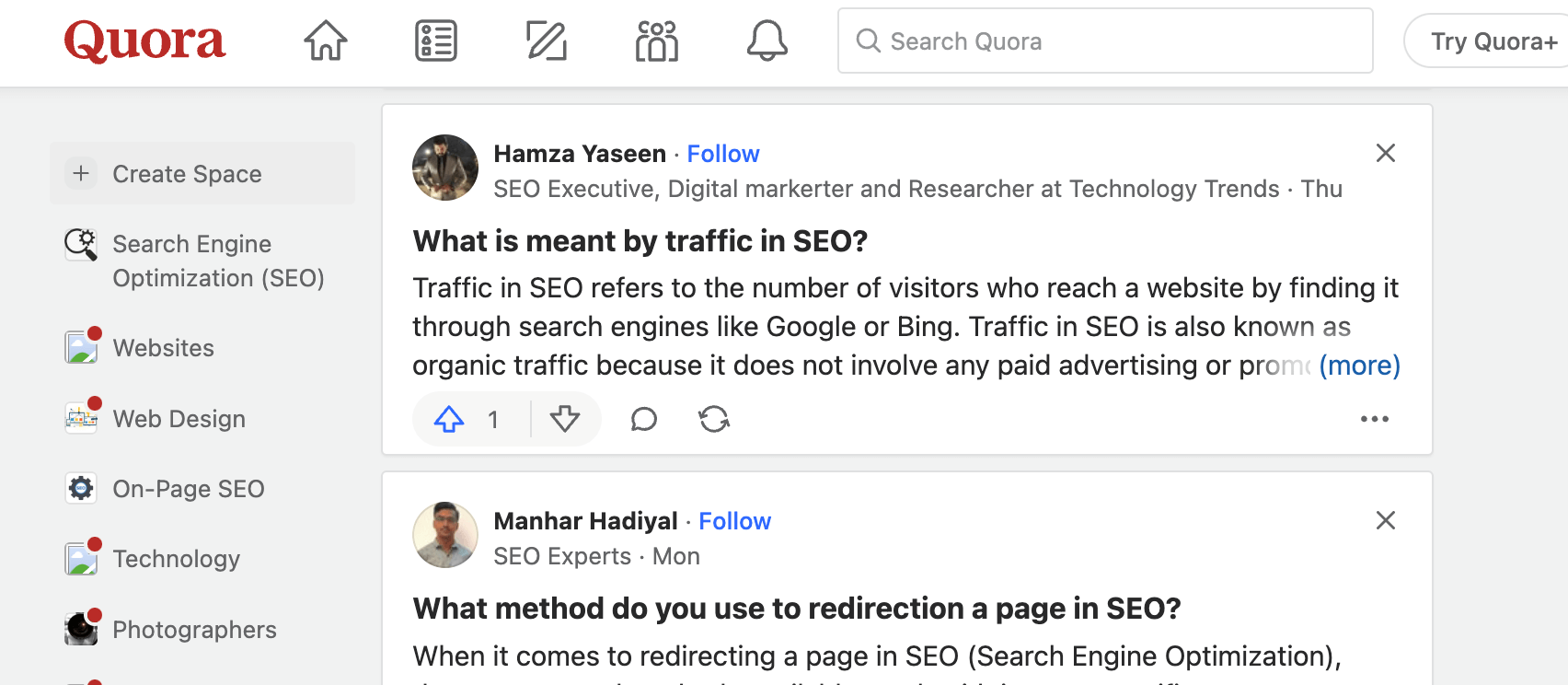
Quora is a great tool if you know the general topic that you want to address but need more specific information. Search the numerous threads by the topic you are interested in and Quora will pull the most popular questions around that subject. This helps you determine what type of information people are looking for so that you can focus on creating content that fills those gaps.
Another great thing about Quora is that you can go back and reply to the threads that originally inspired your content. Include a link to your new article that addresses the question and provides a helpful response. This offers customers the information they need and generates more brand awareness for your organization.
Answer the Public
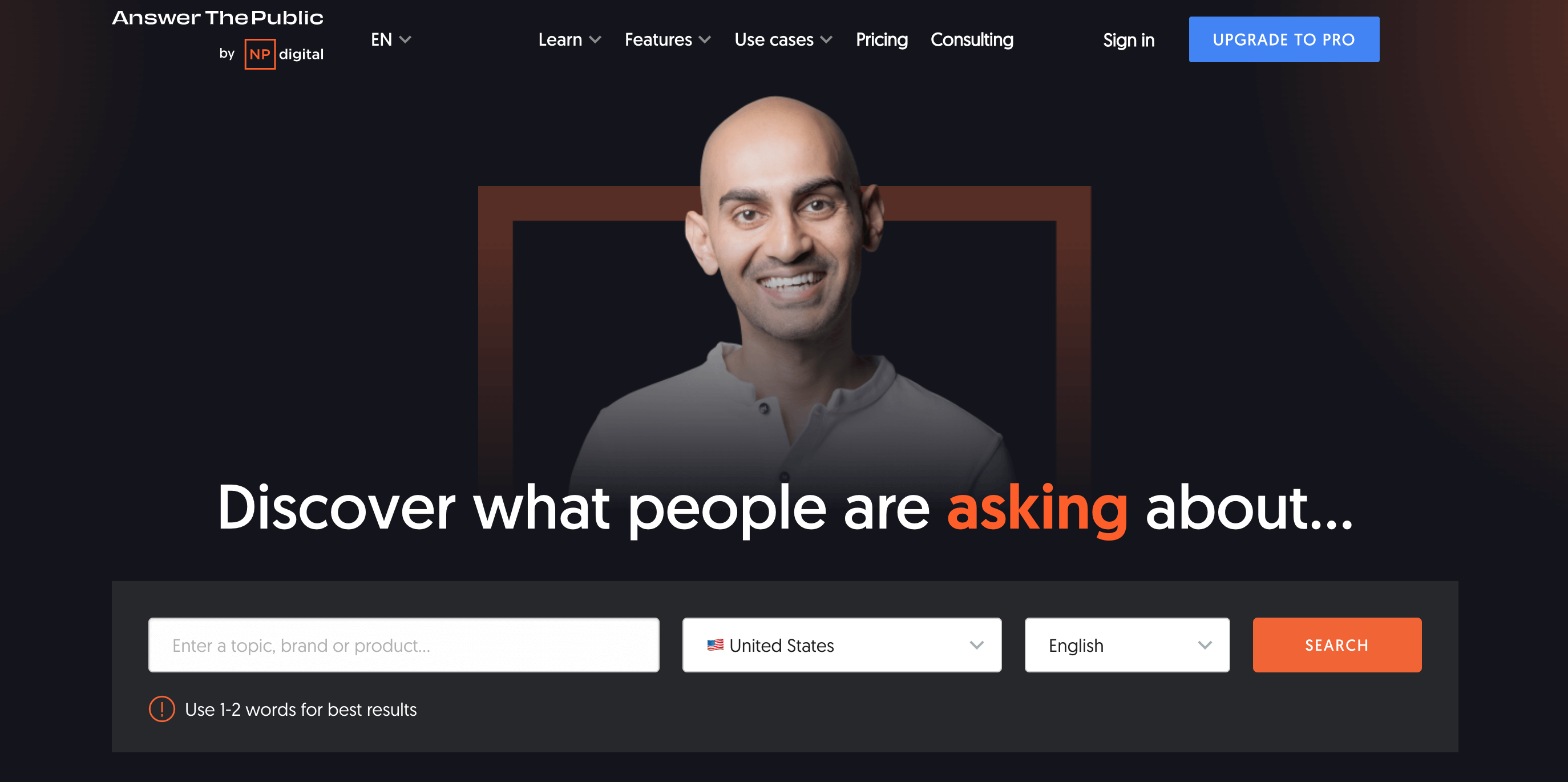
This content ideation tool offers insight into the questions that people are asking related to broader topics and what keywords or phrases they are using to search for answers. To use, you enter a keyword and the tool creates a visual web of related search phrases. You can use this to find more detailed questions about particular topics that you can then address in your content.
One of the benefits of this approach is that many of the questions — especially comparison-based questions — tend to target an audience that is deeper in the sales funnel.
FAQ Fox
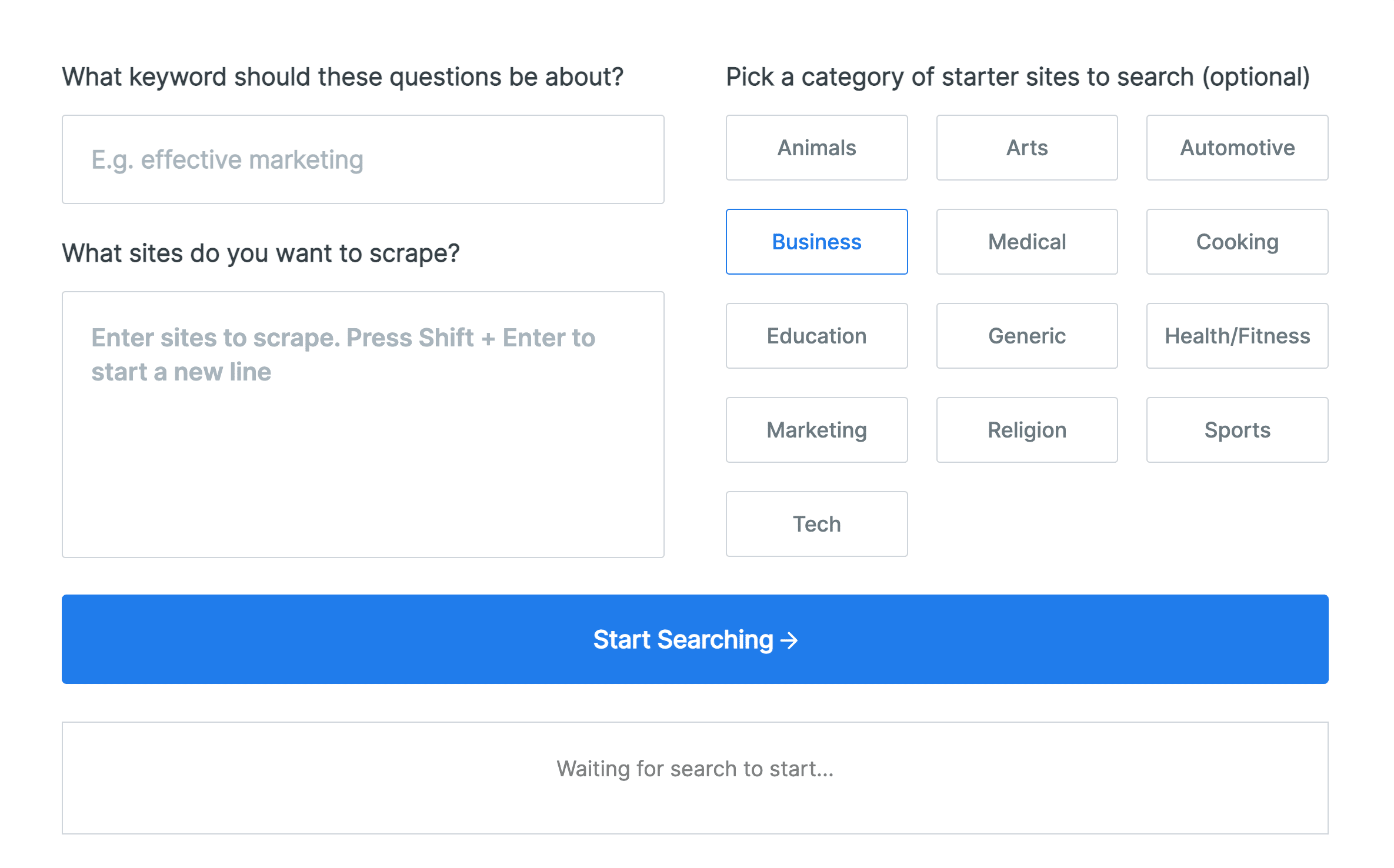
While it is helpful to have more information about general search terms and topics of interest, sometimes you need to know what your competitors are doing so that you can stay ahead of the curve. FAQ Fox allows you to enter specific sites or pick from suggested categories of sites. Then, it pulls up a list of existing content and shows you how and where the keyword that you are targeting is used in the title and meta description.
You may choose to use FAQ Fox if you are interested in the language consumers use when searching for answers to their questions. It is also a helpful tool for identifying which questions are not being answered or which questions have subtopics that can be addressed.
Keyword.io

Another powerful content ideation tool is Keyword.io. With this tool, users can plug in a seed keyword and instantly unlock a treasure trove of longer tail keywords. What sets Keyword.io apart from other options is its versatility, allowing users to perform platform-specific keyword pulls across popular platforms. This ensures comprehensive coverage of the different topics across various channels.
As you review the list of potential keywords, you can save those that stand out for future reference and create a prioritized list. This allows content creators to streamline their ideation process and focus on the most relevant and impactful concepts.
Google Search Console

Google Search Console enables you to monitor and maintain your presence in Google search results effectively. One of its key features is the ability to view top queries, impressions, clicks, and click-through rates (CTRs). This data allows you to identify which search terms are driving traffic to your site and evaluate their performance. By analyzing the CTRs, you can determine if certain keywords are underperforming and then focus on enhancing or replacing the content for those keywords. This insight provides opportunities for quick wins by addressing specific areas of existing content that require attention.
Searching your own site to uncover areas that need content optimization or new content is an essential part of the content creation process. By analyzing the performance metrics of individual pages, you can identify keywords or topics that are underperforming and then tailor your content strategy accordingly.
Google Keyword Planner
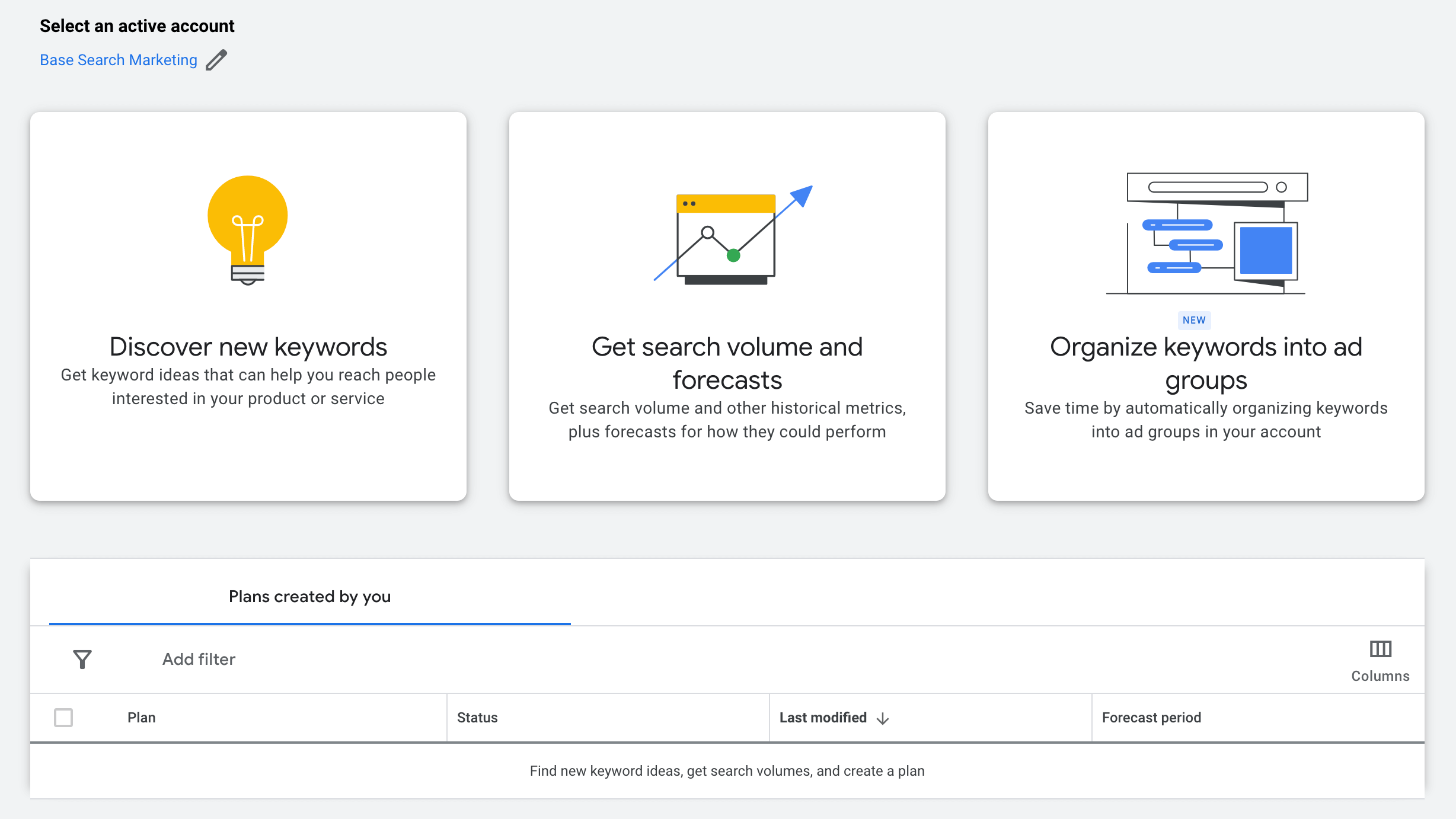
The Google Search Console looks at the performance of keywords that you are already targeting, but the Google Keyword Planner helps uncover new keyword opportunities. You can discover new phrases that are being searched by entering the products or services related to your company. You can also compare your domain and competitor domains to find potential keyword gaps. Chances are that if your competitors are talking about a topic, you will want to do so as well.
Google Trends
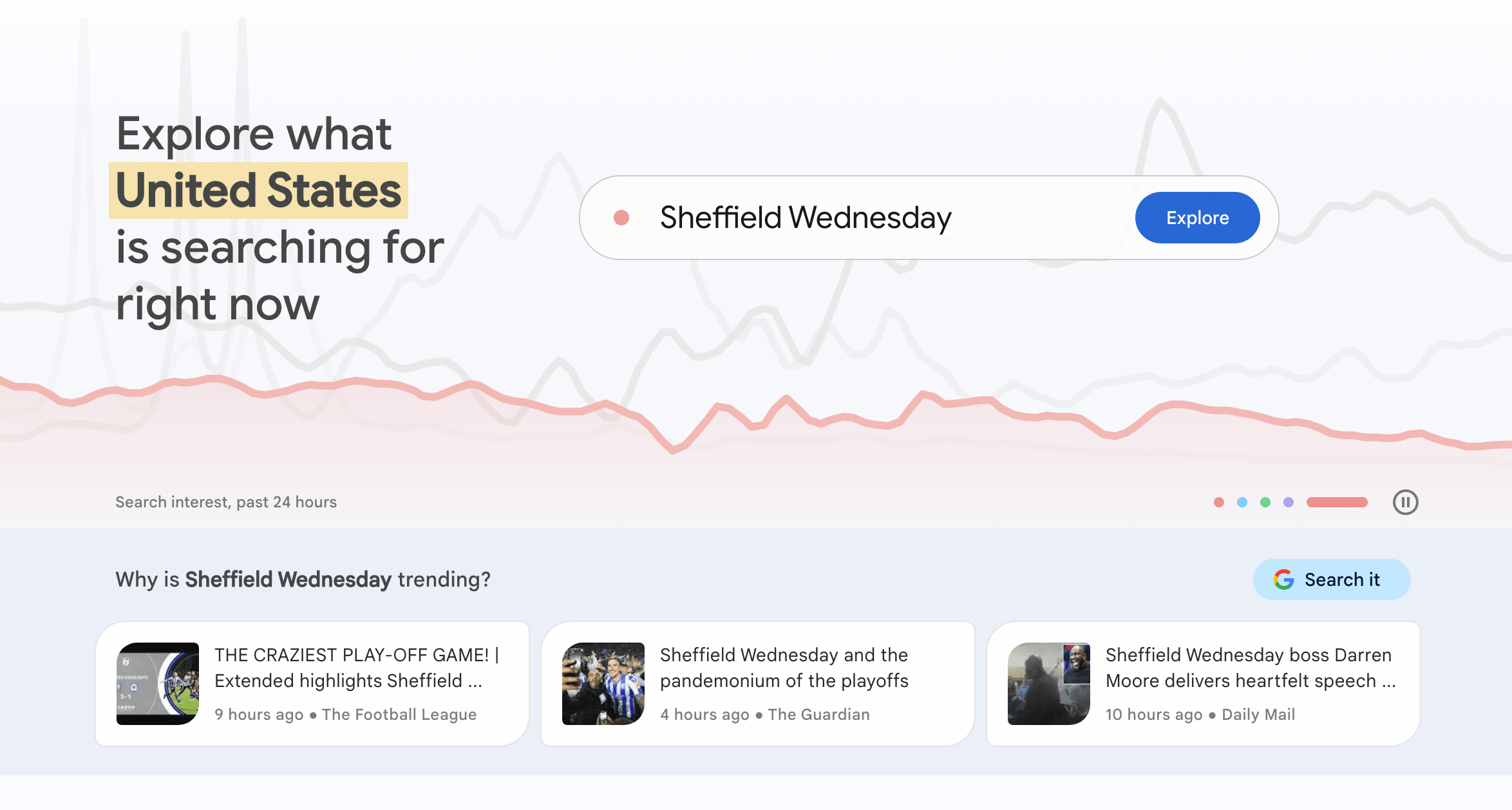
As you might expect, Google Trends provides insights about trending search terms for your industry and subtopics that Google associates with those keywords. By understanding common searches related to topics in your industry and the user intent for those searches, you can better address the questions that customers have.
Google Trends also allows you to see what terms are consistent, when off-seasons are for seasonal or annual topics, and when searching picks up for certain topics. Great content should be timely, and Google Trends can help you identify whether a keyword is worth going after or if interest is already dying down.
How to Make the Most of Content Ideation Tools
Content ideation tools have become indispensable assets for content creators looking to craft effective content. These tools offer valuable insights into audience preferences and behaviors, allowing you to align your content with what your audience is searching for.
It is now more important than ever to emphasize quality content over quantity, but content ideation tools enable you to identify the right topics that will resonate with your audience. Moreover, they provide an effective guide for aligning content with keyword objectives. Utilizing these tools allows you to gain insight into what your audience is searching for, find keyword opportunities, optimize your existing content, or identify gaps where you should create new content.
Once you utilize these tools, BASE can help you optimize your content or create new content that matches your content strategy.



